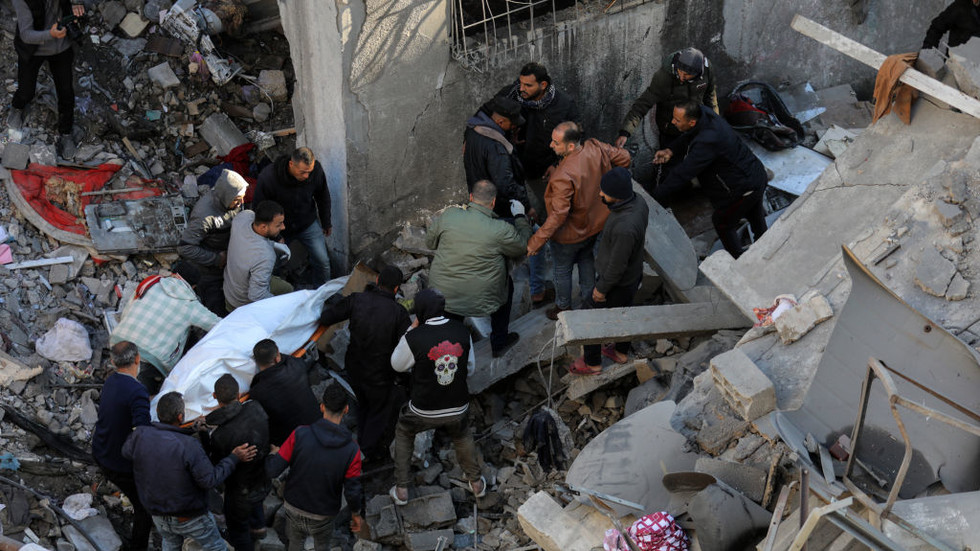The interception was reportedly prompted by suspicions that the aircraft was carrying arms for Hezbollah
The Israeli military forced an Iranian civilian airliner to turn back mid-flight and leave Syrian airspace over the weekend, according to Israeli media reports. West Jerusalem was reportedly concerned that the plane may have been transporting weapons for the Lebanon-based militant group Hezbollah.
The purported incident happened overnight from Saturday to Sunday and involved several Israeli fighter jets, which reportedly threatened the Mahan Air plane before it could land in Syria, according to Ynet and The Times of Israel.
Ynet shared a map of a flight coming from Tehran via Iraqi airspace to Syria and then going back, but the Times of Israel said it was unrelated to the incident.
A similar air encounter reportedly took place in early October in Iraqi airspace, when a Qeshm Fars Air flight from Tehran had to make a U-turn after a warning from the Israeli Defense Forces (IDF). The Israeli military has accused Tehran of ferrying weapons to Hezbollah via the Beirut airport under the cover of civilian aircraft, vowing in late September to “patrol” the airspace to prevent such cargoes from making it to their supposed destination.
West Jerusalem also claims that Hezbollah receives regular weapons shipments via land routes through Syria. Last week, the Israeli military reported bombing several “smuggling sites” along the Lebanese-Syrian border.
Israel has a long record of airstrikes on Syrian soil, including at border crossings and in large cities, which the IDF claims are aimed at disrupting Iranian military operations in the country.
In April, Israel hit a building at Tehran’s embassy compound in Damascus, killing an Iranian general and multiple other people. An Israeli military spokesman later claimed that the facility was a legitimate military target and not protected by international law.
Tensions between Hezbollah and Israel escalated in October 2023, when the IDF besieged the Palestinian enclave of Gaza in retaliation for Hamas’ deadly raid into southern Israel. In September, West Jerusalem launched a campaign to cripple the movement, targeting its leaders and regular members with airstrikes and covert action and later sending ground troops across the border.
Last Wednesday, a ceasefire between Israel and Hezbollah brokered by the US and France entered force. However, Paris has reportedly privately criticized West Jerusalem after recording over 50 violations of the truce throughout the week.
Israeli Prime Minister Benjamin Netanyahu claimed that one of the reasons his government agreed to the ceasefire was a need to focus on the Iranian threat.

 1 month ago
8
1 month ago
8







 We deliver critical software at unparalleled value and speed to help your business thrive
We deliver critical software at unparalleled value and speed to help your business thrive






 English (US) ·
English (US) ·